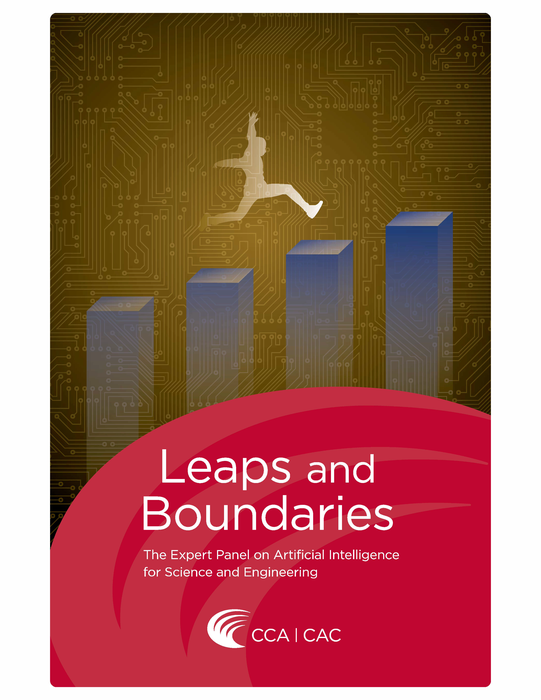Artificial intelligence (AI) is poised to transform how science and engineering is conducted and funded in Canada, bringing both tremendous opportunities and risks, according to a new expert panel report from the Council of Canadian Academies (CCA). AI has the potential to spur innovation and further scientific understanding beyond the limits of human abilities but could also deepen existing inequities, perpetuate human biases, and even create new ones.

Credit: Credit: Council of Canadian Academies
Artificial intelligence (AI) is poised to transform how science and engineering is conducted and funded in Canada, bringing both tremendous opportunities and risks, according to a new expert panel report from the Council of Canadian Academies (CCA). AI has the potential to spur innovation and further scientific understanding beyond the limits of human abilities but could also deepen existing inequities, perpetuate human biases, and even create new ones.
“The cross-cutting nature of AI means that no field will remain untouched by this technology,” said Teresa Scassa, SJD, Chair of the Expert Panel. “To maximize its benefits, it will be critical that the social and ethical implications of AI are addressed at the earliest stages of development, through to application, and with greater collaboration among researchers across disciplines and sectors.”
Canada could also risk losing its competitive advantage in AI unless it takes decisive steps to move beyond its existing strengths. To date, growth in AI has been focused heavily on research and talent, but there’s a pressing need to better integrate knowledge and skills across multiple disciplines for the responsible development and use of the technology in a broader way.
AI is already used for a range of tasks in science and engineering, such as analyzing and interpreting data. It’s anticipated that in the near future, AI will be developing novel scientific hypotheses and experiments, and creating new engineering design processes, with minimal human involvement. This rapid pace of technological development has created various legal and regulatory hurdles, including issues related to data governance, intellectual property, and the management of acceptable levels of societal risk.
“AI can lead to significant advances in science and engineering, but not without recognizing potential pitfalls,” said Eric M. Meslin, PhD, FRSC, FCAHS, President and CEO of the CCA. “Realizing the promise and potential benefits of AI will require addressing possible biases, from the people who build it, the institutions and governments whose policies are intended to regulate it, and the organizations that use it.”
The National Research Council of Canada asked the CCA to examine the legal, regulatory, ethical, social, and policy challenges associated with deploying AI technologies to enable scientific and engineering research design and discovery.
Leaps and Boundaries identifies the actors whose decisions will determine how the challenges will be addressed and how various fields and sectors could potentially integrate AI into their practices.
Visit www.cca-reports.ca to download the report.




